By Philip Burton Morris
When news began to circulate through the city of Bordeaux, France, in August 1914 that war had broken out with Germany, 21-year-old Englishman Wilfred Owen was as surprised as most. Owen had come to Bordeaux a year earlier to teach at the Berlitz School of Languages and had remained in France as a private tutor for the children of a local family. As he listened to the rapidly developing world calamity, Owen pondered his next move. It was a time of awful uncertainty for the displaced young Englishman, still years away from the poetic breakthrough that would secure his legend. “War broke; and now the Winter of the world/ With perishing great darkness closes in,” he remembered in his poem “1914.” The granite simplicity of the lines was uniquely his.
Owen Joins the War
Owen soon grew restless in Bordeaux, writing to his brother Colin in August, “I feel shamefully ‘out of it’ here, passing my time reading the newspapers in an armchair in a shady garden,” while his countrymen back home enlisted by the thousands and prepared to fight. “After all my years of playing soldiers, and then of reading History, I have almost a mania to be in the East, to see fighting, and to serve.” Service was a kind of promise he made to himself: already an aspiring writer, disadvantaged by not having attended a prestigious university, Owen believed that returning home to join the British war effort was a golden opportunity for him to reconcile his twin impulses toward art and action.
Once decided, Owen wasted little time. After recovering from a bout of diphtheria, he returned to England in the autumn of 1915 and enlisted in the Artist’s Rifles, an officers’ training corps that promised a commission to “any gentleman returning to England from abroad.” He did not relish the boredom of training or the khaki uniforms, said Owen, nor did he feel the need “to save my honor before inquisitive grandchildren fifty years hence. But I now do most intensely want to fight.”
Seeing the Real Nature of War
The soldiering experience, as he had expected, was revelatory from the start. Owen was fascinated by the balance struck by his training officers between personal joviality and professional duty: “All our instruction is done by sergeants, who are as chummy between times as they are smart on parade,” he observed. “Impossible to get them out of temper.” Military life promised what Owen had hoped: the opportunity to remove himself from the irritating confines of quiet study rooms and English gardens and probe his undeveloped sense of honor and bravery. He was tired of having words do all the work.
Owen dedicated himself to becoming as impeccable a soldier as possible, explaining to his brother Harold, “If I have got to be a soldier, I must be a good one, anything else is unthinkable. I cannot alter myself inside nor yet conform but at least without any self-questioning I can change outside, if that is what is wanted.” Harold came to visit Wilfred at his barracks in Essex in mid-September of 1916, and already Owen was speaking of himself as though he were a poem whose words required rearranging. Harold wished his brother well and hoped, as Owen left London by boat on December 29, heading back to France and the Western Front, that the meeting would not be their last.
The grim realities of trench warfare made themselves instantly known to Owen, who was commissioned a second lieutenant in the 5th Battalion, Manchester Regiment. “In 2 ½ miles of trench which I waded yesterday there was not one inch of dry ground,” he wrote home, already weary of the daily demands placed upon the soldiers even before the line grew loud with gunfire. When it did, Owen was stunned by the vast, pitiless volume of the shells, which he reported back to his family with the visceral precision of an experienced soldier. “It was not a succession of explosions or a continuous roar,” he wrote. “It was not a noise; it was a symphony. And it did not move. It hung over us. It seemed as though the air were full of a vast and agonized passion, bursting now with groans and sighs, now into shrill screaming and pitiful whimpering, shuddering beneath terrible blows, torn by unearthly whips, vibrating with the solemn pulses of enormous wings.”
“I Have Suffered Seventh Hell”
This was a mere prelude, however, to the coming day of combat that gave Owen his clearest, most appalling view of warfare, a vision of hell to which he would return again and again in some of his most celebrated poems. On January 12, 1917, Owen led his battalion up to the Bertrancourt line near Amiens. German forces began to shell them heavily, driving Owen and a section of his soldiers into a damaged hut for cover. The German fire persisted without letup—“The Germans knew we were staying there and decided we shouldn’t,” Owen reported mordantly—and the poet shared space with the ruined body of a dead soldier, petrified, shivering, and unable to escape. “Those fifty hours,” he confessed in a letter to his family, “were the agony of my happy life.”
Owen and the regiment spent the rest of the winter and spring on the front lines. The lifelong nature lover from Shropshire confronted a ruined landscape where “there is not a sign of life on the horizon and a thousand signs of death. Not a blade of grass, not an insect; once or twice a day the shadow of a big hawk, scenting carrion.” The constant pressure of freezing days and nights in the trenches became unbearable for Owen. He described “hideous landscapes, vile noises, foul language even from one’s own mouth (for all are devil ridden), everything unnatural, broken, blasted; the distortion of the dead, whose unburiable bodies sit outside the dugouts all day, all night, the most execrable sights on earth.” Shortly after this meltdown, Owen did his best to explain frankly to his family the grave realities of his predicament: “I have suffered seventh hell,” he wrote. “I have not been at the front. I have been in front of it.”
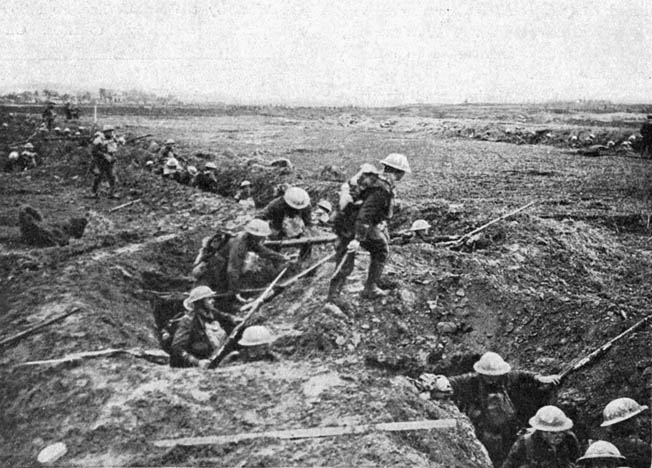
Shell Shocked at St. Quentin
On April 14, 1917, the regiment took part in an offensive at St. Quentin. Moving to support the French left, Owen’s troops had to cross the exposed crest of a hill under heavy shell fire. Owen described the attack. “The sensations of going over the top are about as exhilarating as those dreams of falling over a precipice, when you see the rocks at the bottom surging up at you,” he wrote. “I woke up without being squashed. Some didn’t. Then we were caught in a tornado of shells. The various waves were all broken up and we carried on like a crowd moving off a cricket field. When I looked back and saw the ground all crawling and wormy with wounded bodies, I felt no horror at all but only an immense exultation at having got through the barrage.”
Although he didn’t realize it at the time, Owen was suffering from shell shock, partly as the result of a concussion he had sustained after falling into a 15-foot well while on patrol in the dark. His battalion colonel had him removed from frontline duty for observation. Diagnosed as suffering from neurasthenia brought on by combat stress, Owen was sent to Craiglockhart War Hospital in Edinburgh, Scotland, to rest and recuperate. There, his short-lived career as a poet would truly begin.
Writings on the War
Owen settled into a peaceful routine at Craiglockhart. In July, less than a month after arriving, he assumed the role of editor for The Hydra, a depository for light verse and occasional poetry by the patients. It was while editing The Hydra’s eighth issue that Owen discovered he was in the company of Siegfried Sassoon, an older poet and soldier whose invaluable guidance would catalyze the evolution of Owen’s poetry. Sassoon’s own writings had an immediate effect on his apprentice. “I have just been reading Siegfried Sassoon, and am feeling at a very high pitch of emotion,” Owen wrote. “Nothing like his trench life sketches has ever been written or ever will be written.”
At the encouragement of his doctor, Captain Arthur J. Brock, Owen had already been striving to capture in his own writing the combat sensations that had brought him to Craiglockhart. The process was a difficult one. “One became conscious that the place was full of men whose slumbers were morbid and terrifying—men muttering uneasily or suddenly crying out in their sleep,” Owen noted. He was acutely aware of the fragile balance between days spent mending fears and the far less forgiving arena of remembered experience that arrived with sleep. His own dreams seemed constantly to undo the progress made each day. Owen diagnosed this as a mass symptom shared by many of his fellow soldiers at the hospital: “In the day-time, sitting in a sunny room, a man could discuss his psycho-neurotic symptoms with his doctor, but by night each man was back in his doomed sector of a horror-stricken front line where the panic and stampede of some ghostly experience was re-enacted among the livid faces of the dead.”
The observation later found its way into one of Owen’s most famous poems, “Dulce Et Decorum Est,” in a pair of lines dripping with empathy for the dream-deprived soldier: “In all my dreams before my helpless sight,/He plunges at me, guttering, choking, drowning.” As with much of Owen’s writing, honestly describing his war experiences was of paramount concern. The poem took its title form a Latin slogan about how it was “sweet and fitting to die for one’s country.” With pitiless irony, Owen contrasted that decorous sentiment with a young British soldier’s hideous death by poison gas: “the white eyes writing in his face,” the blood “gargling from the froth-corrupted lungs,/ Obscene as cancer, bitter as the cud/Of vile, incurable sores on innocent tongues.” No one seeing such a sight, says Owen, would be quite so quick to tell “the old Lie” about lovely sacrifice to “children ardent for some desperate glory.”
“Anthem for Doomed Youth”
His duty as a writer, Owen felt, was to educate the public to the true nature of combat, and of its endless, unforgiving ramifications. It was this impulse toward the unsentimental and the realistic in poetry that ingratiated Owen to Sassoon. The two met at the hospital in August 1917, and by September, Sassoon was actively supervising and editing Owen’s poems. Sassoon had observed earlier, “The man who really endured the War at its worst was everlastingly differentiated from anyone except his fellow soldiers.” In Owen he recognized both a likeminded poet and a fellow soldier.
The two men proved ideal companions during their recovery, and from September onward, Sassoon kept careful watch on the progress of Owen’s work. He even suggested to Owen the title of a poem that he guided his protégé through writing. Sassoon thought it might be called “Anthem to Dead Youth.” The poem, carefully revised throughout multiple drafts by both men, was finally entitled “Anthem for Doomed Youth.” Upon its completion, the poem was instantly recognized as Owen’s masterpiece—“a revelation,” thought Sassoon, who compared the younger poet favorably with the Romantic master John Keats.
“Anthem for Doomed Youth” later vindicated Sassoon’s praise by becoming the most anthologized and celebrated of all poems written during and about World War I. Its cadence carries a sense of resigned futility and disgust at the specter of helpless young men marching off toward certain death: “What passing-bells for these who die as cattle?/Only the monstrous anger of the guns.” The only mourning service they would receive came from “the shrill, demented choirs of wailing shells,” and their unnoticed deaths evoke nothing more than a winter sunset: “And each slow dusk a drawing-down of blinds.”
A Sufficient Recovery
His poetic triumph still fresh, Owen was dealt a mixed blessing on November 4, when the medical board at the hospital ruled that he had recovered sufficiently from his neurasthenia to return to his battalion. “You did not light me: I was always a mad comet; but you have fixed me,” Owen wrote in farewell to Sassoon the following day. “I spun round you a satellite for a month, but I shall swing out soon, a dark star in the orbit where you will blaze.” On the third week of November, Owen rejoined the regiment at Scarborough, joining the 5th Reserve Battalion, a new unit drawn from the tatters of the other war-torn Manchester battalions.
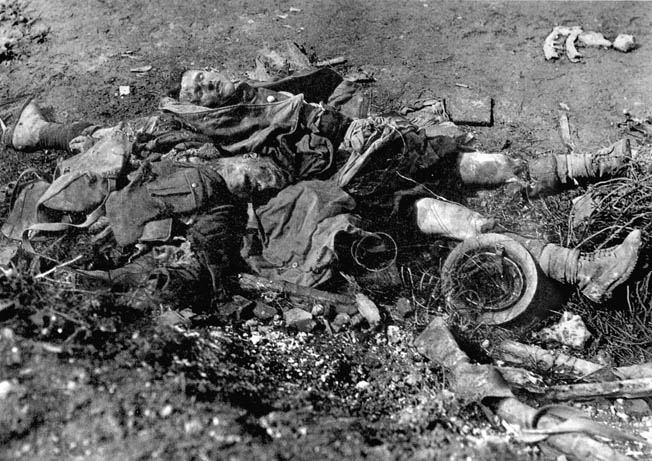
Owen used the Christmas holiday at the end of 1917 to measure the scope of his transformative experiences at Craiglockhart. His conclusion was typically graceful and straightforward: “I go out of this year a Poet, my dear Mother, as which I did not enter it.” He could not help returning to the darker realities of his surroundings, and to the responsibility he felt toward his fellow soldiers. Their faces, he said, bore “an incomprehensible look. It was not despair, or terror, it was more terrible than terror, for it was a blindfolded look, and without expression, like a dead rabbit’s. It will never be painted, and no actor will ever seize it. And to describe it, I think I must go back and be with them.” And so he did.
Owen redoubled his efforts to make himself a fine soldier, while at the same time resigning himself to an early death in combat. On two-day leave in Shrewsbury in April 1918, Owen’s brother Harold complained about his apparent fatalism. “You have made up your mind to get back to the front lines as soon as possible, haven’t you?” “Yes I have, Harold,” Owen answered, “and I know I shall be killed. But it’s the only place that I can make my protest from.” It was as though, having written a perfect antiwar poem with “Anthem for Doomed Youth,” Owen chose to compose his final protest by returning to the war. If he wished to continue writing, he would have to continue fighting.
“The Most Famous Literary Manifesto of the Twentieth Century”
Siegfried Sassoon, too, had returned to combat, but he was wounded by friendly fire on July 13 and temporarily returned to a hospital bed. Owen was bolstered in his desire to serve by Sassoon’s injury, although he was not without lingering uncertainties. “You said it would be a good thing for my poetry if I went back,” he wrote to Sassoon from his new appointment near Amiens. “That is my consolation for feeling a fool. This is what shells scream at me every time: Haven’t you got the wits to keep out of this?” Fighting at Joncourt on October 2, Companies C and D drove German forces south in dramatic fashion, as Owen breathlessly recounted to his mother: “I lost all my earthly faculties, and fought like an angel. I came out in order to help these boys—directly by leading them as well as an officer can; indirectly, by watching their sufferings that I may speak of them as well as a pleader can.” The poet had already proven he could plead their sufferings. The officer now needed to lead his men as well. He did. “On the Company Commander becoming a casualty, he assumed command and showed fine leadership and resisted a heavy counterattack. He personally manipulated a captured enemy machine gun in an isolated position and inflicted considerable losses on the enemy. Throughout he behaved most gallantly.”
The words came this time, not from Owen, but from the official citation accompanying the Military Cross later awarded to him for his actions during the fight. Owen had proven himself finally, unmistakably to be a soldier. By then, he was making plans to publish his poems in a book provisionally entitled Disabled & Other Poems. He scribbled out the rough draft for a preface, a piece of writing that Owen biographer Jon Stallworthy has termed “the most famous literary manifesto of the twentieth century.” In it, Owen summed up everything he had learned in, and about, war: “This book is not about heroes,” he wrote. “English poetry is not yet fit to speak of them. Nor is it about deeds, or lands, nor anything about glory, honor, might, majesty, dominion, or power, except War. Above all I am not concerned with Poetry. My subject is War, and the pity of War. The Poetry is in the pity.”
Wilfred Owen’s Final Battle
A month later, on November 4, Owen offered his final protest, just as he had told his brother Harold he would. Leading the battalion across the Sambre Canal at Ors, Owen and his infantrymen came under heavy German fire as they attempted to repair a makeshift crossing-bridge. Standing at the river’s edge shortly before noon, offering encouragement to those struggling to refasten the loose wooden boards, Owen was shot and killed. He was buried in a corner of the cemetery at Ors, between two of his men, Privates W.E. Duckworth and H. Topping. He would have approved the company.
One week later, almost to the hour, the Armistice became official—World War I was over. The Owen family back in Shrewsbury received notice of the death of their eldest child, the promising poet and decorated soldier, even as the village church bells, oblivious to the loss, were chiming their joy at the end of the war.
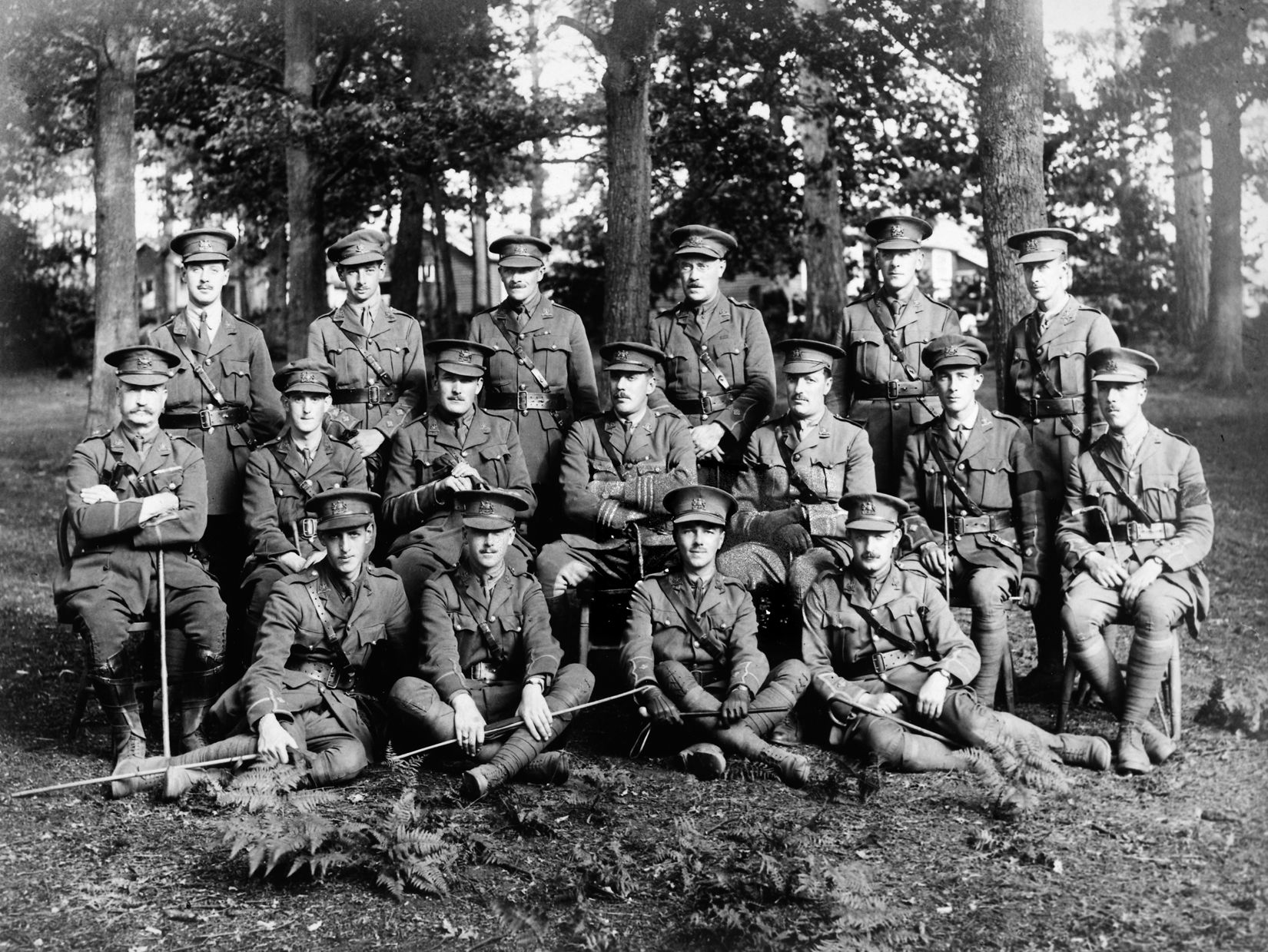
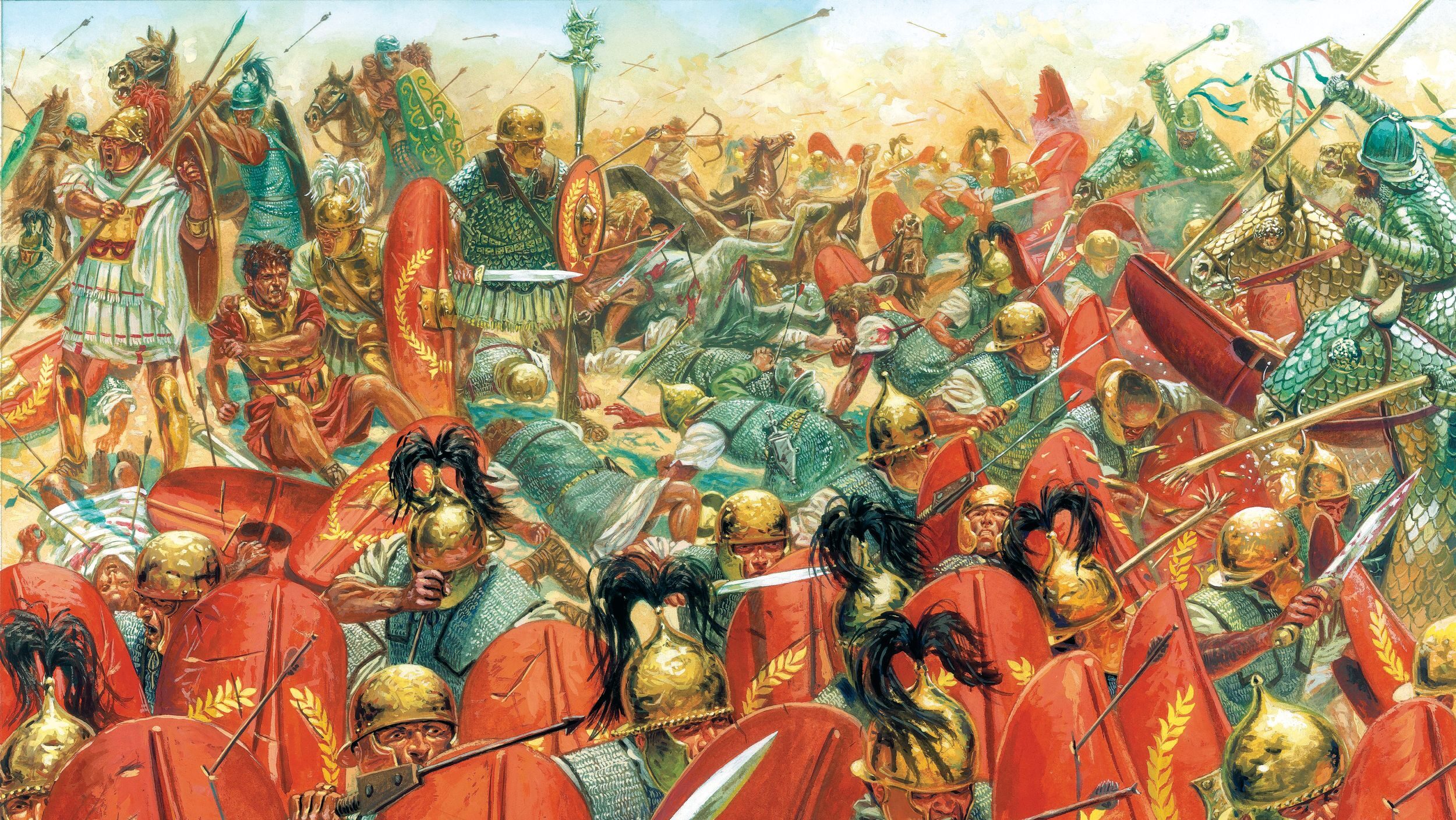
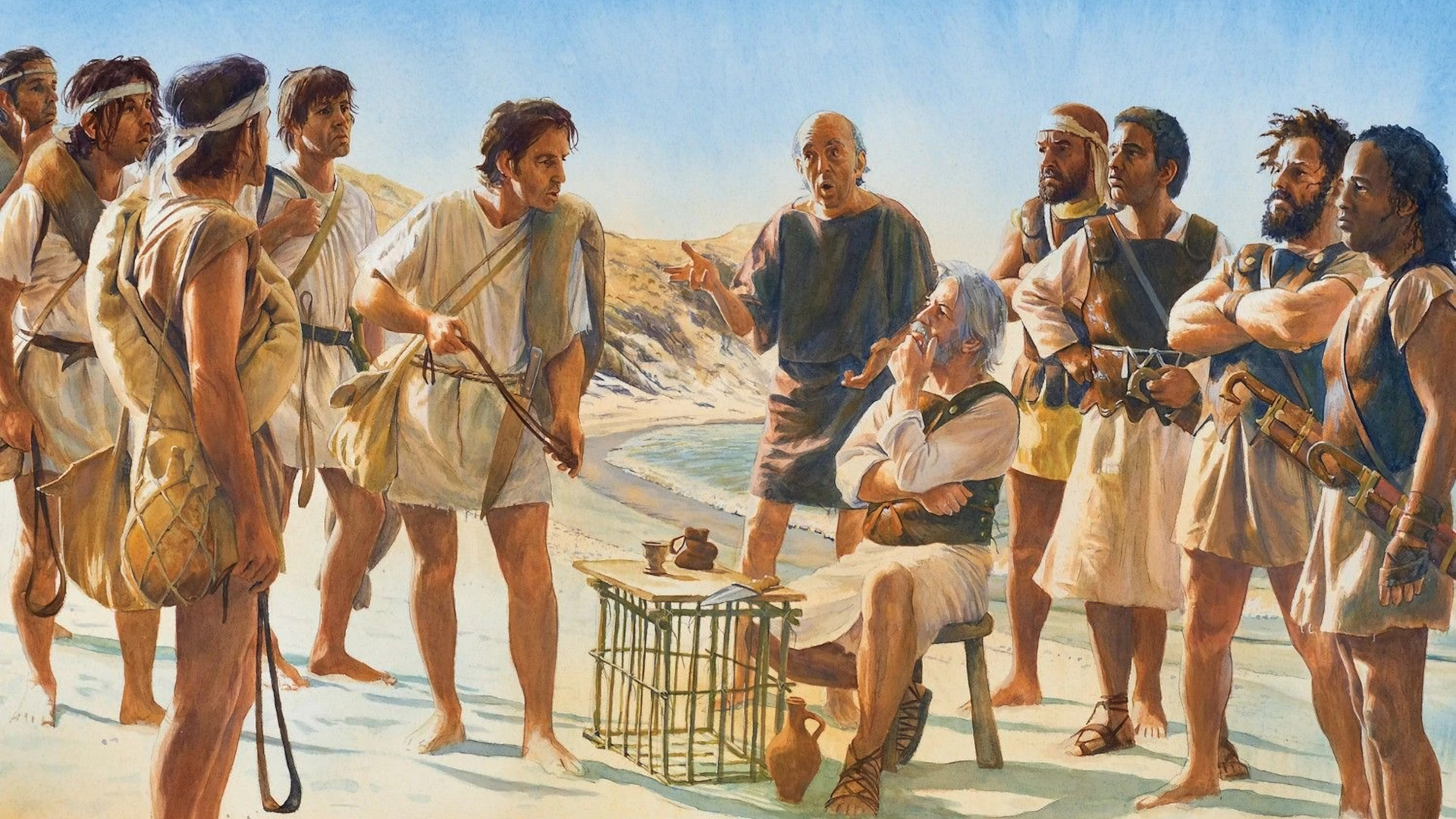
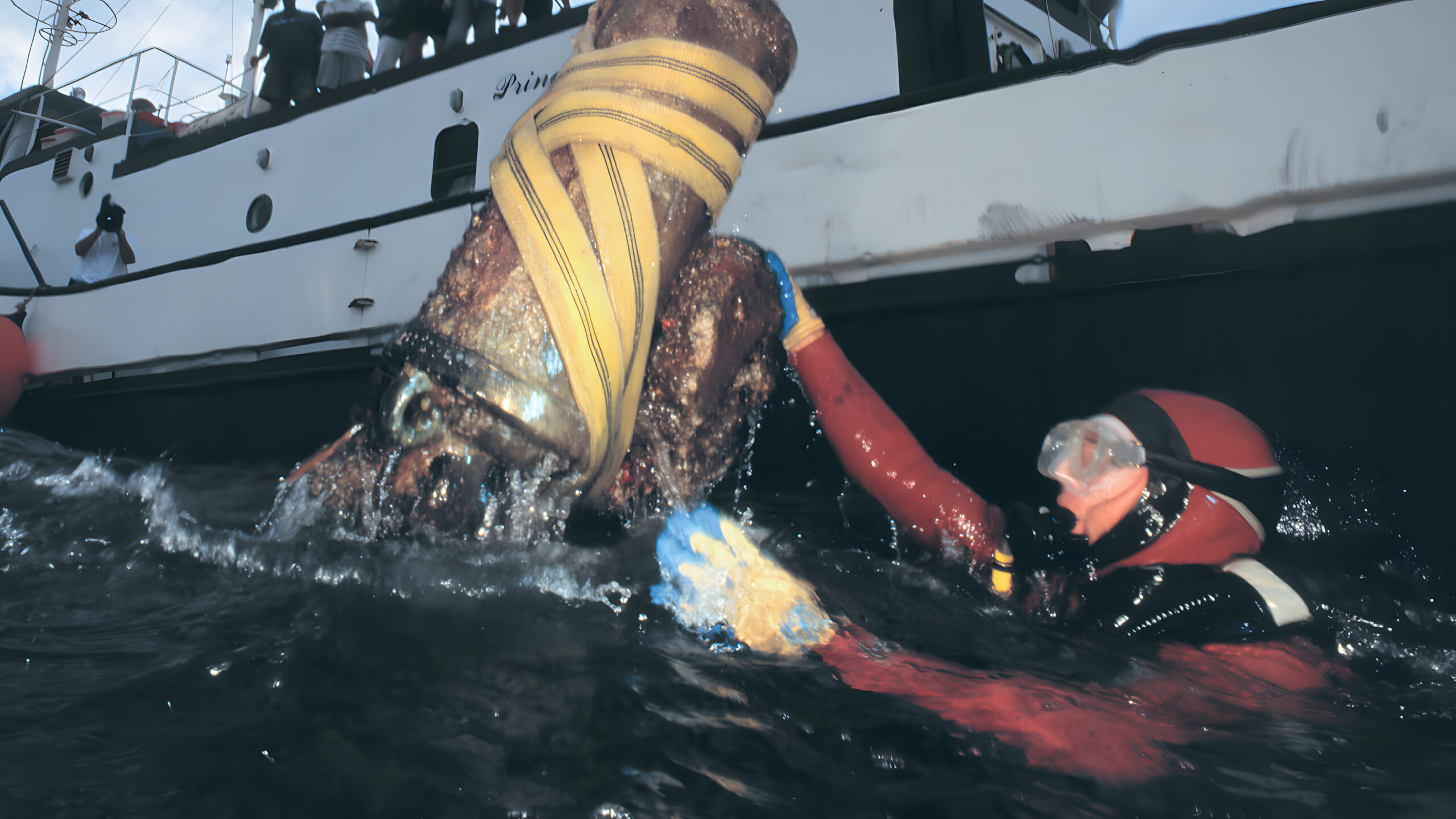
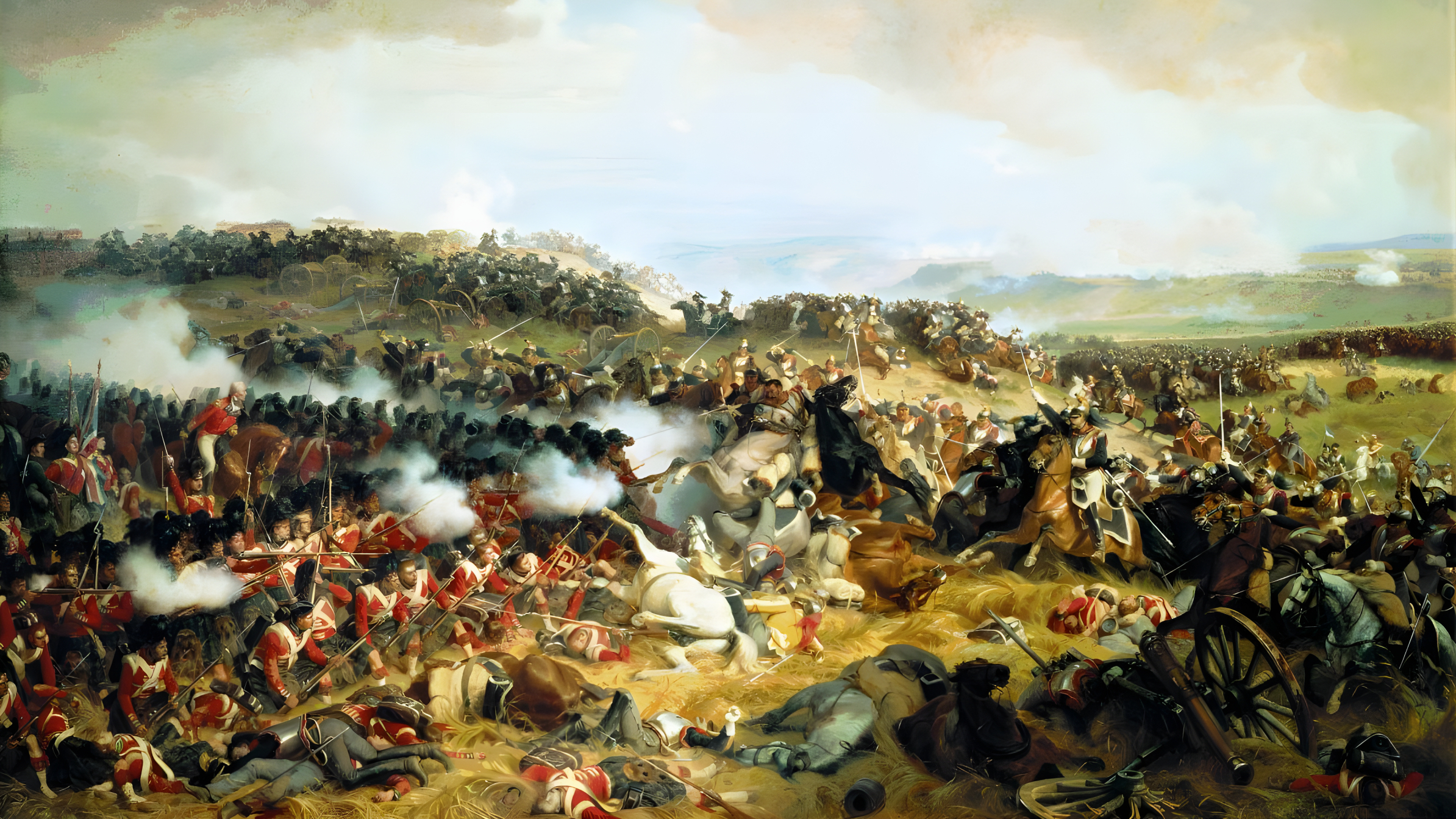
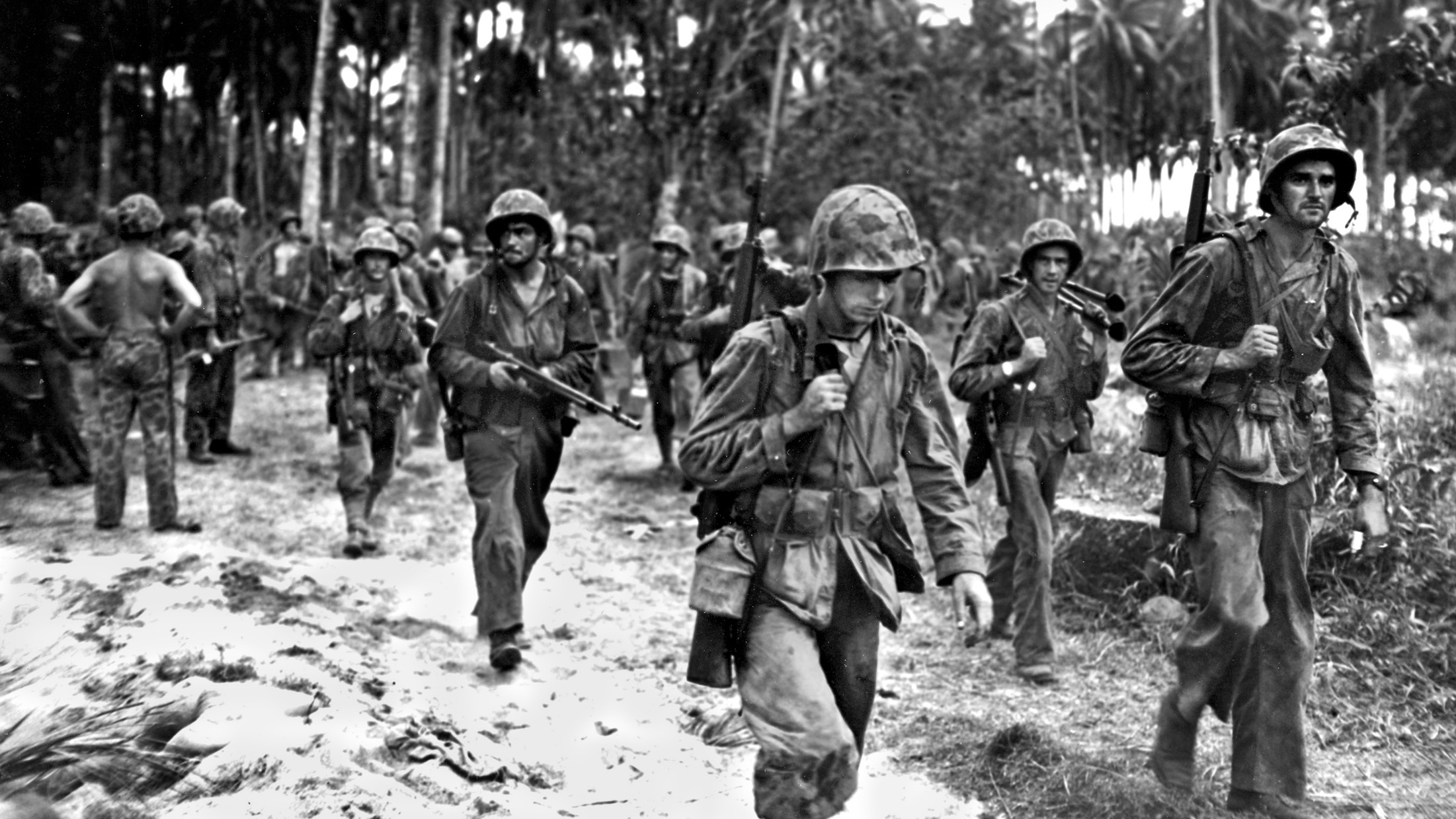
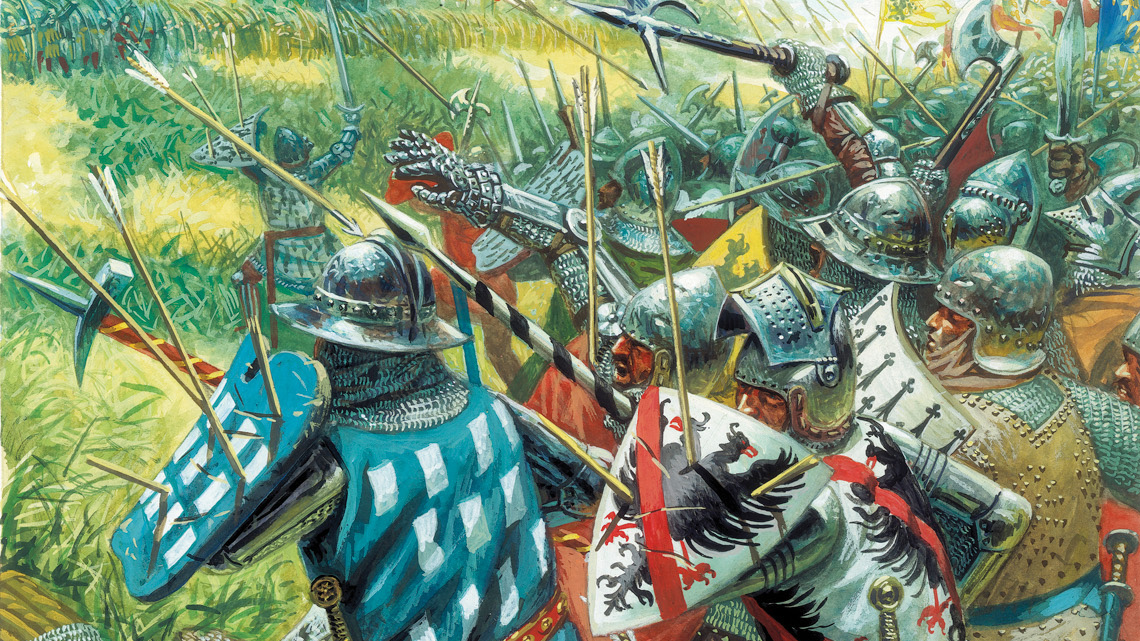
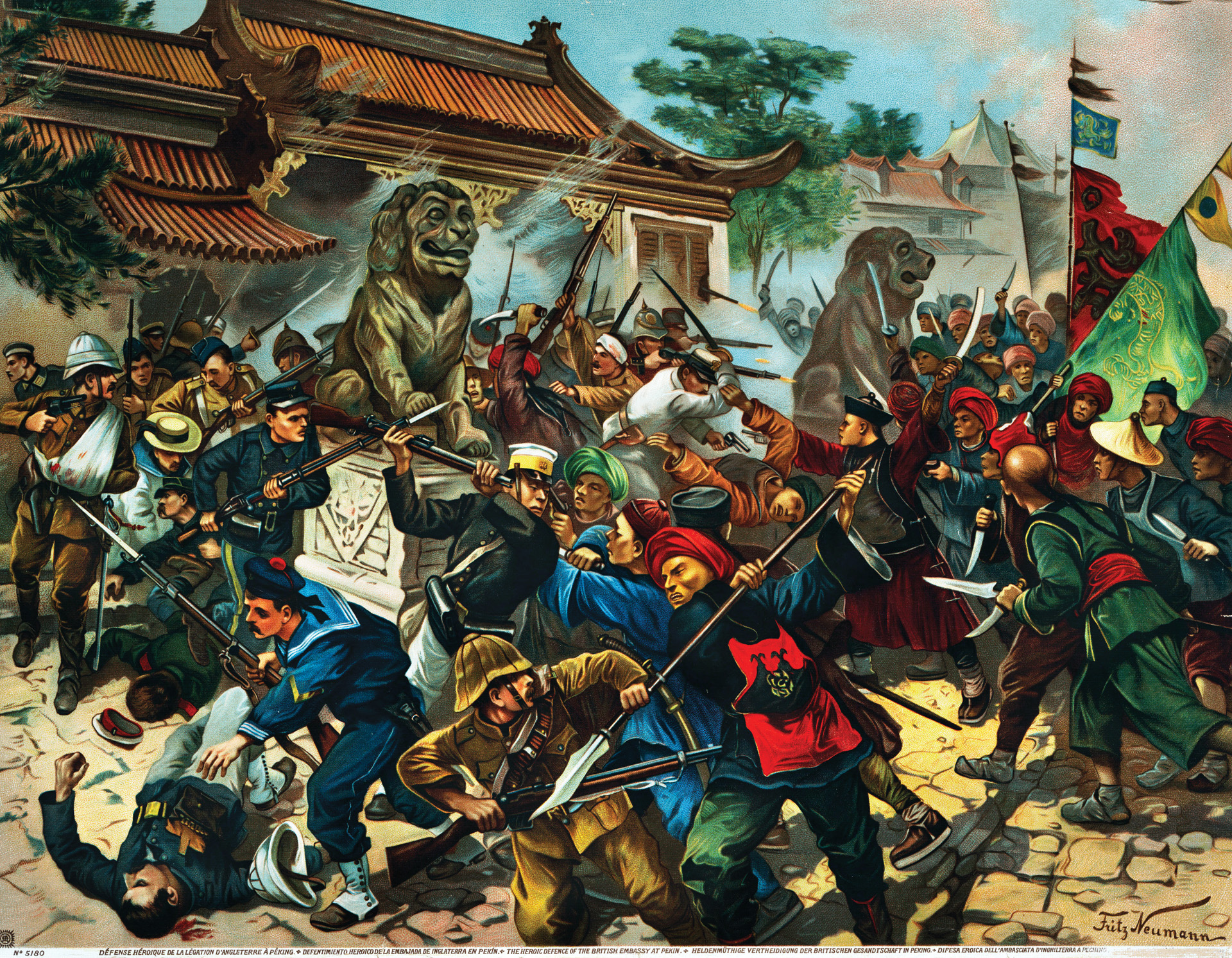
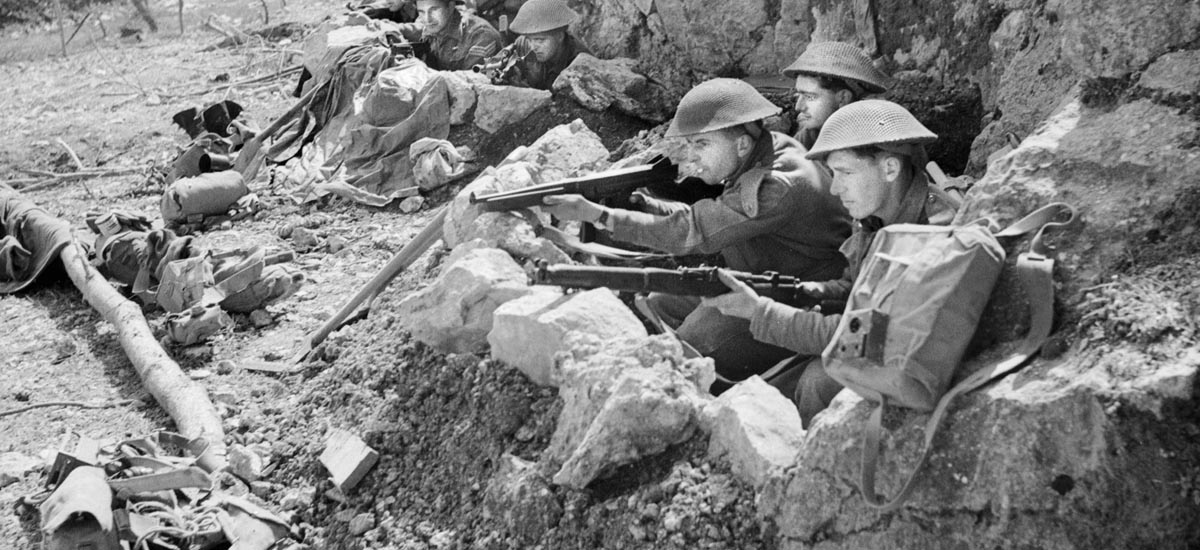
Join The Conversation
Comments
View All Comments